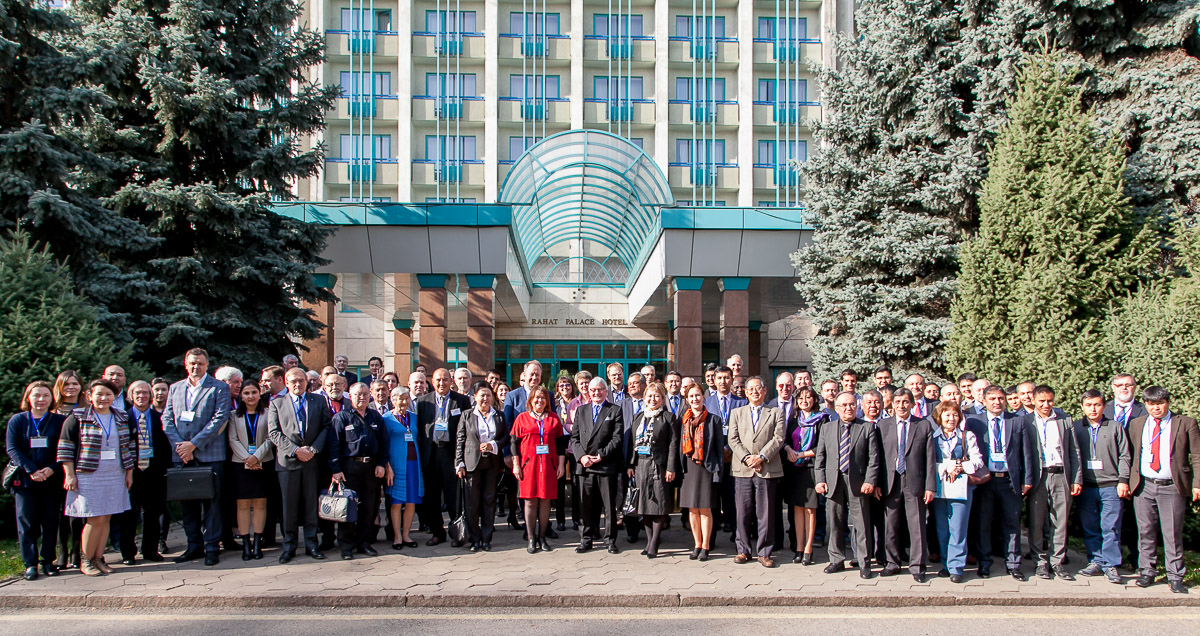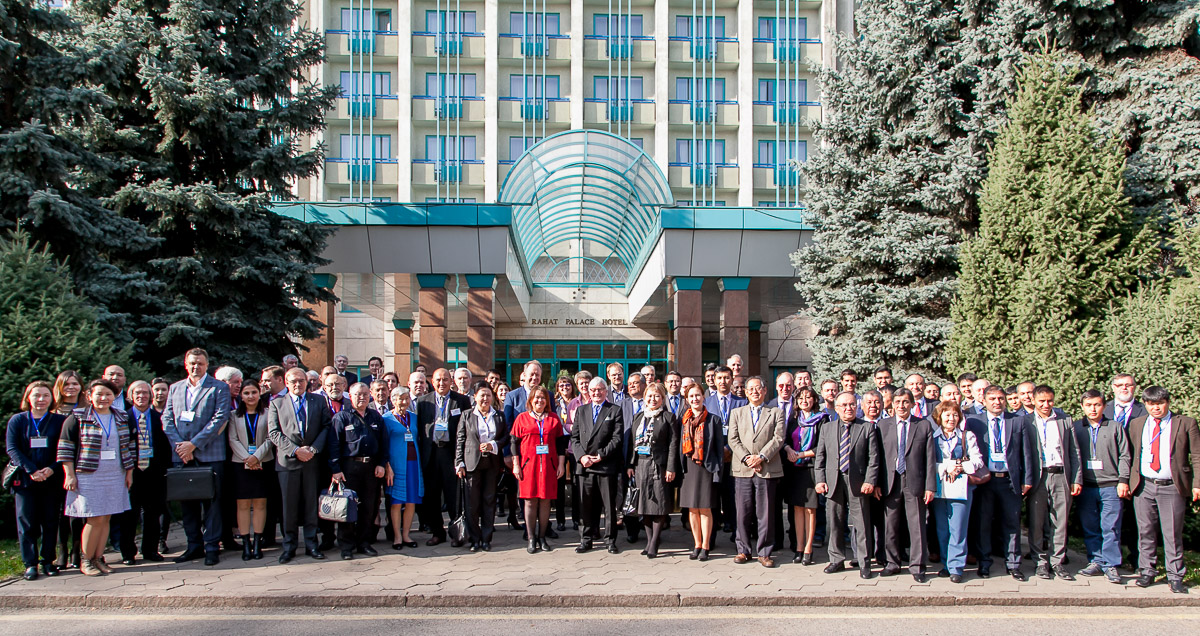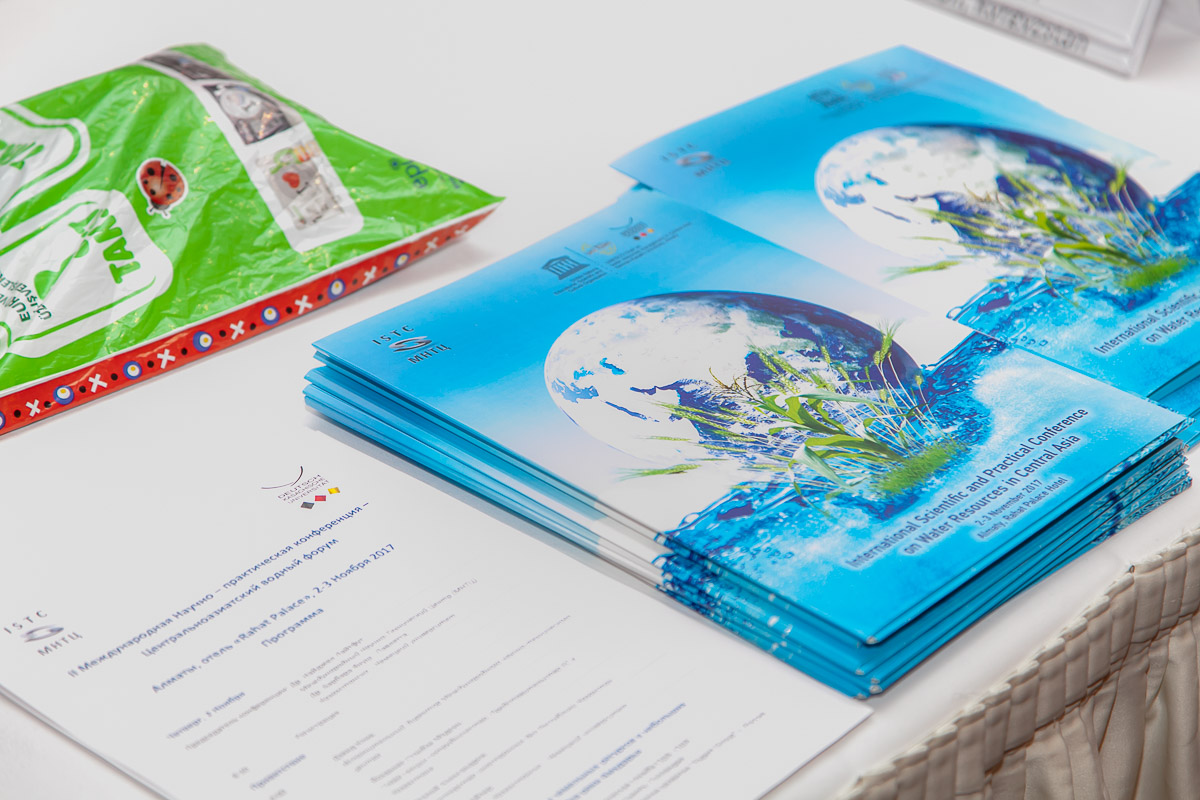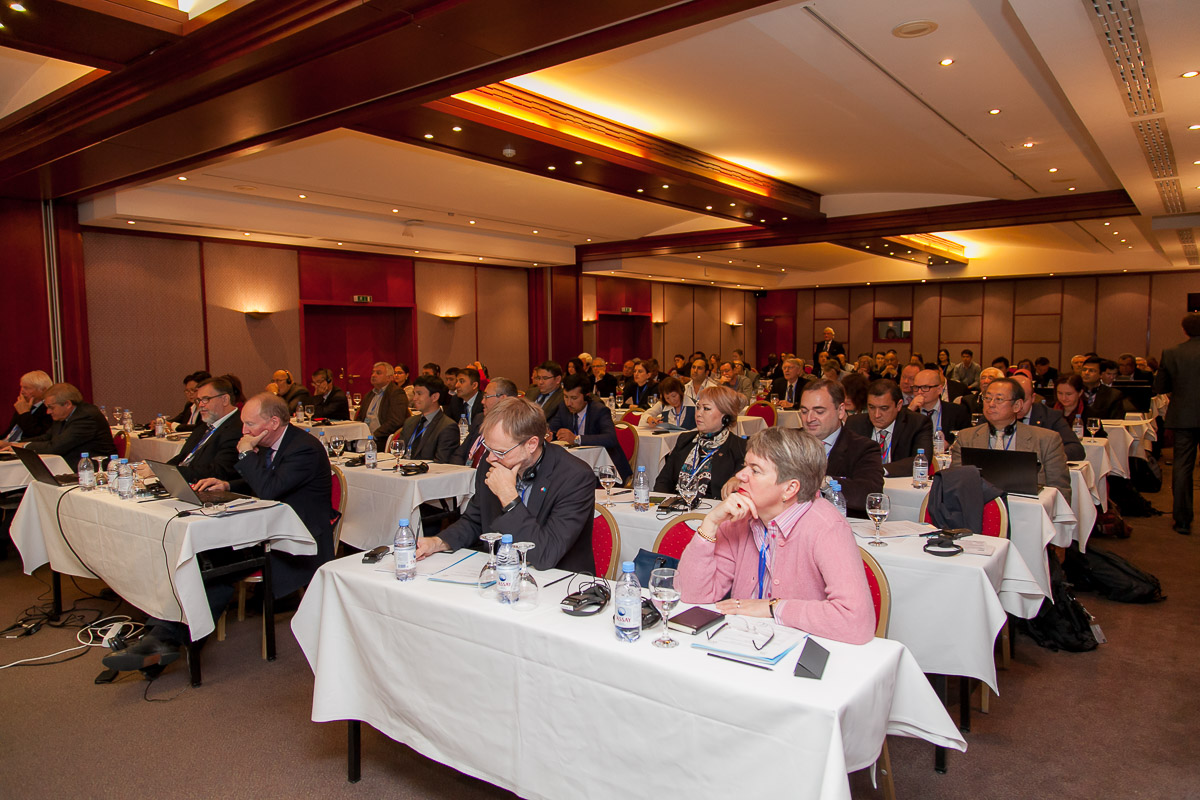ISTC Science Advisory Committee (SAC) and Water management workshop

On 1st November 2017 the ISTC Science Advisory Committee (SAC) convened in Almaty for their bi-annual meeting to review ISTC Project proposals and to discuss issues relating to SAC current and future activities and to get updates on ISTC's current activities from the ISTC ED David Cleave.
The SAC meeting was Chaired by ISTC Japan Party Mr. Tokio Fukahori, whose science speciality is Nuclear (JAEA) accompanied by US Party Jeffrey Richardson (Nuclear) and EU SAC members Jean Muyleart (Space ESA), Maurice Leroy (Chemistry), and Nigel Lightfoot (Medicine & Water).
On 2nd and 3rd November 2017 the SAC Central Asian Water Forum took place at the Rahat Palace Hotel in Almaty, which is in follow up to a successful Water Management workshop held in April 2017, which had earlier initiated discussions on water management in Central Asia and the Caucasus looking at the problems faced by those countries and seeking collaboration between the countries to develop new ideas to resolve their water management issues in the regions which are become increasingly important in the future.
Water resources are seen as a future security threat as the most valuable commodity that could cause regional issues in Central Asia and the Caucasus. Water effects, food security, soil erosion, climate change, and access to water as the most important resource on the planet.
The April seminar sought to set up new networks of like minded scientists to deal with these problems and issues and out of the first seminar 3 working groups were asked to develop 3 transboundary project proposals. The Central Asian Seminar's objective is to take the next step in developing those proposals to potential funded projects.
The Three projects are 1): Monitoring the Amu Daryia river basin. 2): Transboundary Groundwaters and 3): Hydrochemistry of Uranium mining tailings.
9 countries participated in the Water Forum from Kazakhstan, Kyrgyzstan, Tajikistan, Armenia, Georgia, Afghanistan, Pakistan, Uzbekistan, Turkmenistan. There were in total 96 Forum participants.
Now more than ever regional collaboration and cooperation is becoming ever more important and this falls under the new strategic policy of ISTC to not only have larger projects but also to involve more countries in those projects to look and the regions water threats and problems, no one country can resolve these problems thus it needs the will of many like minded policy and decision makers in the many countries to join forces to resolve such issues. The world now relies on science and innovation to make the world a better place.
ISTC is a valuable conduit to help science and scientists in Central Asia deal with many of the security issues through supporting the many projects and initiatives in the area and this new Central Asian Water Forum is a good platform for dealing with this very important regional issue.




